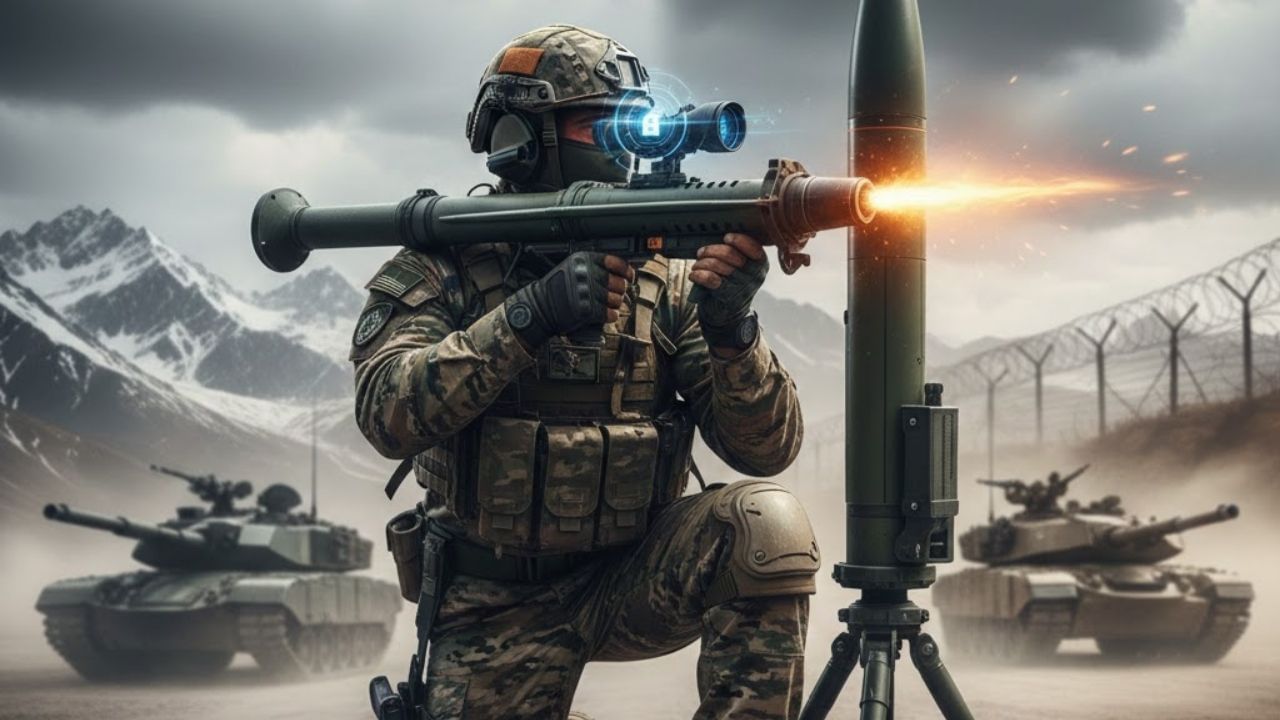Gamechanger for Indian Army
India has taken a very important step in the defense sector, which has given a new edge to the country’s military power. The US has given the green signal to the sale of two major weapon systems to India, these include the FGM-148 Javelin anti-tank missile system and the M982A1 Excalibur artillery projectile. This deal is worth approximately $93 million i.e. more than Rs 775 crore.
The way tension on the borders has increased in the last few years, especially after the Kashmir terrorist attack on 22 April 2025, there has been a tremendous change in India’s defense strategy. After that attack, India launched a courageous military operation named ‘Operation Sindoor’. This operation proved that India is now developing the ability to respond quickly and keep the enemies at bay. Defense Minister Rajnath Singh had also said that the morale and coordination of the army is such that now ‘winning has become our habit’. In such a situation, the arrival of Javelin is a big relief for the country’s army, which was waiting for decades to fulfill its requirement of third-generation anti-tank missiles.
‘Javelin’ is lifeline for the army
The Indian Army is getting 100 Javelin missiles and 25 Command Launch Units (CLU) in this deal. This is a stopgap solution that will bridge the gap until mass production of our indigenous Anti-Tank Guided Missiles (ATGMs) begins.
- Accurate aiming and protection: Javelin is one of the most reliable anti-tank missiles in the world. Its biggest feature is its ‘fire-and-forget’ system. That is, the soldier can hide immediately after firing the missile, which increases his security.
- Top-Attack: This missile attacks the enemy tank from above, where their armor is weakest. Its firing range is up to about 4 kilometers.
- Infrared technology: This missile uses passive infrared seeker technology, which reduces the impact of countermeasures.
- Fire from closed space: It has soft-launch capability, which means it can be fired from inside a closed space or bunker.
Before Javelin, India was working on third-generation missiles like indigenous Nag, Helina, Dhruvastra and MPATGM, but the development of these highly complex technologies was taking time. This is the reason why the army is still dependent on old second-generation missiles. With the availability of Javelin, the strength of our light infantry and mountain units will increase manifold. India is trying to get America to approve the co-production of this missile, so that it can be manufactured in the country in collaboration with Bharat Dynamics Limited.
Not only tanks, now artillery also got ‘nuclear’ like accuracy
The other part of the deal is the M982A1 Excalibur precision artillery projectile. This ammunition will change the entire power of India’s artillery.
- Less miss, more hit: Excalibur’s accuracy is so high that its target deviates by less than two meters. It has the ability to deliver accurate blows in the very first round.
- Long Range: It increases the range of ordinary guns up to 40 kilometers and the range of 58-calibre guns up to 70 kilometers.
- A round is heavier: Raytheon Company claims that the lethality of one Excalibur round is equal to at least 10 conventional rounds.
From Russia to Britain, India is now writing its own defense policy
This deal of Javelin and Excalibur is a small part of India’s comprehensive defense modernization. India is no longer dependent on just one country; He is choosing the best weapons of the world according to his needs.
- Britain: India has recently signed a £350 million deal to buy Light Weight Modular Missiles (LMM), also known as Martlets, from Britain. These supersonic missiles can deliver accurate strikes against drones, helicopters and low-detection targets at a distance of more than 6 kilometers.
- Russia: Russia has offered India the technology of its Su-57 fifth-generation stealth fighter jet without any restrictions. This includes engines, radar and AI technology. Russian officials have also said that all the technical needs of India will be met. This offer is proof that India can now demand technology transfer from any defense partner on its own terms.
